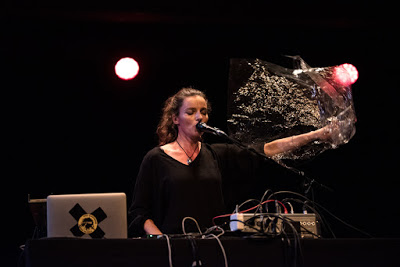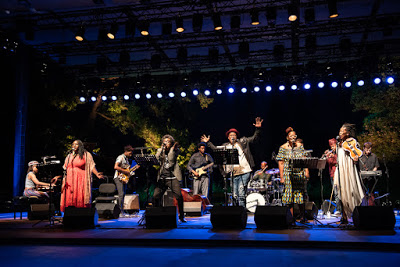 |
| Maja S.K. Ratkje © Jazz em Agosto / Petra Cvelbar |
Index of posts for Jazz em Agosto 2019:
Day 1: https://www.freejazzblog.org/2019/08/jazz-em-agosto-2019-day-1.html
Day 2: https://www.freejazzblog.org/2019/08/jazz-em-agosto-day-2.html
Day 3: https://www.freejazzblog.org/2019/08/jazz-em-agosto-day-3.html
Day 4: https://www.freejazzblog.org/2019/08/jazz-em-agosto-day-4.html
Day 5: https://www.freejazzblog.org/2019/08/jazz-em-agosto-day-5.html
Day 6: https://www.freejazzblog.org/2019/08/jazz-em-agosto-day-6.html
Day 7: https://www.freejazzblog.org/2019/08/jazz-em-agosto-day-7.html
Day 8: https://www.freejazzblog.org/2019/08/jazz-em-agosto-day-8.html



